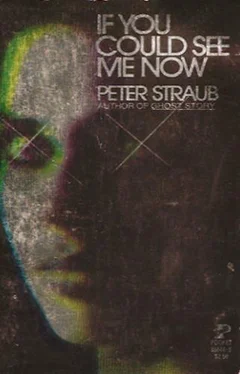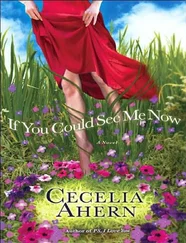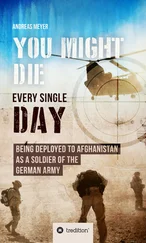“Your employment is terminated. I don’t need you any more. The job is finis. Kaput . Ended. Over. Finished. Done.”
“You been sitting here all night?” She crossed her arms over her chest, an operation requiring an impressive amount of effort. “Drinking gin?”
“Please go home, Mrs. Sunderson.”
“You afraid of my seeing something? Well, I’ve already seen it.”
“You haven’t seen anything.”
“You look kinda sick. What did you do, swallow a bottle of aspirin or something?”
“I don’t know how suicide ever got along without you.”
“By rights I should get the whole week’s wages.”
“Indeed you should. In fact you should get two weeks’ wages. Forgive me. Please take fourteen dollars.” I reached in my pocket, drew out bills, counted out two fives and four ones and handed them to her.
“One week’s, I told you. That’s five dollars. You’re paying for today, Friday and Saturday besides the three days I worked.” She took one of the fives and cropped the rest of the money beside me on the porch swing.
“Splendid. Please go and leave me alone. I realize that I’ve been awful to you. I couldn’t help it. I’m sorry.”
“I know what you’re doing,” she said. “You’re as filthy as any beast of the field.”
“That was eloquent.” I closed my eyes. After a while the noise of her breathing changed, and I could hear her turning around. I was getting better. Now I could smell anger. Thank you, Allison. The screen door banged shut, I kept my eyes closed as I heard her walking down the drive.
Who slept together?
One crushed an anthill.
One broke a chair.
One was afraid.
One swam in blood.
One had cold hands.
One had the last word.
When I opened my eyes she was gone. A dusty brown Ford, the mailman’s car, came up the road and passed the impaled metal receptacle without braking. No more fan mail, no more letters from my cousin. Yes. It made sense. Her body — her skeleton, after twenty years — was in a graveyard in Los Angeles, beneath a headstone I had never seen. So she had to put herself together out of the available materials. Or be just a wind, the cold breath of spirit. Leaves, gravel, thorns. Thorns for tearing.
I stood up and went down from the porch. I said in my mind: thorns for tearing. I felt as though I were walking in my sleep. The door on the driver’s side of the Nash had slipped out of alignment, and it dipped when I opened it, creaking loudly in a voice like rust.
For a moment I could not remember where I was going, and simply put-putted up the roads going slowly and serenely as Duane on the big tractor. Then I remembered. The last, the only help. I depressed the accelerator, made the car rattle, picked up speed as I went past the Sunderson house. Mrs. Sunderson was at one of the windows, watching me go by. Then the shell of the school, the church, the tight curve at the sandstone bluff. I passed Andy’s, and saw him pumping gas. his face was like clotted milk. Behind him was a large black area of dead land. his clotted-milk face swung around, tracking me as I passed.
When I came to the narrow path going up between the fields to the trees I swung hard on the wheel again and began to bounce along, going in the direction of the sun. A few ears of corn in the row nearest the road had been struck down, broken off at the stalk, and they lay flattened and sprawling at the field’s edge. Here and there, whole rows had been trampled down; stick-leg cornstalks tilted crazily. Soon I reached the first of the trees, and then the fields vanished behind me and I was threading between big oaks. The narrow early sunlight filtered by the boughs and leaves came down in ribbons. I parked on the slope beside the tall red henhouse. When I got out of the car I could hear the gabbling of the birds. A few terrified hens ran away into the woods, lurching from side to side.
I looked in the henhouse first. I pulled open the doors and stepped inside, hit once again by the stench. It seemed even stronger than on the day when I had clumsily helped her cull the eggs. Two or three birds flapped their wings, high up on their nests, Beaked heads swiveled, button eyes stared fixedly. Slowly, I backed out, the fixed eyes glaring at me from the sides of their old men’s heads. I closed the door as gently as she had taught me.
Two chickens were roosting on the hood of the Nash. I went up the path toward her house. Here the sunlight was blocked from entering directly, and there was only a golden hovering rustle overhead, where the leaves formed another sky. The little house seemed dark and empty.
One had cold hands.
One had the last word.
On a counter in the kitchen stood a plate stacked with something wrapped in a red and white gingham cloth. I touched the cloth. It was dry. I folded it back, and saw mold sprinkled green on the surface of the top piece of lefsa.
She was in the bedroom, lying in the middle of the double bed. A yellowed sheet, a patchwork quilt, covered her. My nostrils caught an odor like a deep bass chord. I knew she was dead before I touched her and felt the stiffness of her fingers. The white hair was spread thickly on the embroidered pillow case. Two, three days dead, I thought. She might have died while Paul Kant’s body was being dragged from the flames of the Dream House, or while I was fitting my body within a ghost’s, I put down her stiff hand and went back into the dark kitchen to telephone the Arden police.
“Uh, goddam,” said Dave Lokken after I had spoken two sentences of explanation. “You’re there now? With her?”
“Yes.”
“You say you found her?”
“Yes.”
“Any, uh, marks on her? Any signs of, uh, assault? Any indication of cause of death?”
“She was about ninety-four years old,” I said. “I suppose that’ll do for cause of death.”
“Well goddam. Goddam. You say you just found her now? What the hell were you doing up there anyways?”
For the last protection. “She was my grandmother’s sister,” I said.
“Uh, family reasons,” he said, and I knew he was writing it down. “So you’re up there in those woods now? That’s where her farm is, right?”
“That’s where I am.”
“Well, goddam.” I couldn’t figure out why he was so agitated by my information. “Look. Teagarden, you don’t budge. Just stay there until I can get out there with an ambulance. Don’t touch anything.”
“I want to talk to Polar Bears,” I said.
“Well, you can’t. You get that? The Chief ain’t here now. But don’t worry, Teagarden, you’ll be talkin’ to the Chief soon enough.” He hung up without saying goodby.
Lokken had been like a being from another, more furious world, and I went back into Rinn’s bedroom and sat beside her on the bed. I realized that I was still moving with the numbness which had settled on me during my almost sleepless night in the living room I had prepared for Alison Greening, and I nearly stretched out on the bed beside Rinn’s body. Her face seemed smoother in death, less Chinese and wrinkled. I was conscious of the bones pushing through the skin of her face. I touched her cheek and then tried to pull the sheet and quilt up over her head. They were pinned beneath her arms; and I remembered Lokken’s telling me not to touch anything.
It was over an hour before I heard vehicles coming up the drive from the valley road, and went onto her porch to see a police car drawing up alongside the Nash, followed by an ambulance.
Chubby Dave Lokken bounced out of the police car and waved angrily at the two men in the ambulance. They got out and crossed their arms and leaned against the side of the ambulance. One of them was smoking, and the leafage of smoke from his cigarette wound up to the dense covering of trees. “You, Teagarden,” Lokken shouted, and I turned my head to look at him. For the first time I saw the rumpled-looking man wearing a suit who stood beside the deputy. He had a Marine crewcut and wore thick glasses. “Teagarden, get the hell out here!” Lokken shouted. The man beside him sighed and rubbed his face, and I saw the black bag in his hands.
Читать дальше












